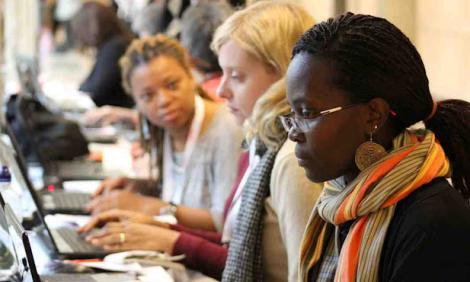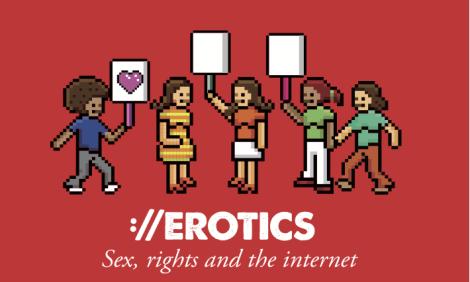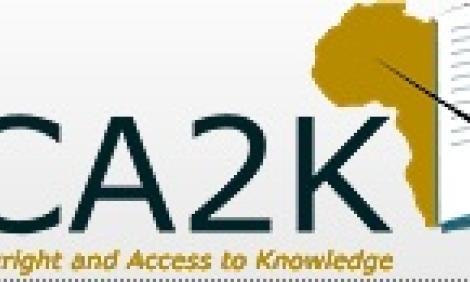Feminist talk
Copyright and the digital divide
It's day two of the 'Informal' Asia Europe Foundation meeting on human rights and ICTs, and we're split up into workshops to discuss recommendations that will go to the Foundation's ministerial meeting in November: I'm in the workshop on digital divide. While a lot of interesting ideas came up during the course of the day, the one which causes me most concern is the problem of knowledge that is…

Editorial
Internet governance: If we are not at the table, we will be on the menu
In 2001, while working at Agenda, a South African feminist academic journal, we produced an edition titled ‘Globalisation: challenging dominant discourses’. The journal problematised the realpolitik of a global neo-liberal economic system that was marked by developing countries’ indebtedness,
the rise of the market and the devastating consequences of structural adjustment policies for women of…

Feminist talk
Bargain basement shopping in the information society
When I saw this quote on Mozilla's new Collusion website: "If you're not paying for something, you're not the customer; you're the product being sold - Andrew Lewis." I felt it summed up the economics tool box session on Commodification of Knowledge that APC led at the 2012 AWID Forum quite nicely. The session, organised by APC, brought together speakers to spark debate and reflection, but the…

Publication
EROTICS: Sex, rights and the internet - an exploratory research study
How is the internet a key public sphere for the struggle for sexual citizenship and the exercise of sexual rights? What is its value to a diversity of users, especially those most marginalised or discriminated against because of their sexual, gender or other forms of social identity? Why do arguments for the regulation of the internet anchor on the moral imperative to regulate sexuality? Who are…
Publication
UN Report of the Special Rapporteur on freedom of expression and the Internet
The UN Special Rapporteur on Freedom of Expression's report explores key trends and challenges to the right of all individuals to seek, receive and impart information and ideas of all kinds through the internet. The Report underscores the unique and transformative nature of the Internet but also outlines the growing global trend of restricting freedom of expression and association online.
Feminist talk
Mexico: ACTA - anyone making a fuss in your country?
Australia, Canada, the European Union, Japan, Mexico, Morocco, New Zealand, Republic of Korea, Singapore, Switzerland and the United States of America are presently negotiating a trade agreement regarding counterfeiting and the enforcement of intellectual property rights, known as the Anti-Counterfeiting Trade Agreement (ACTA). Erika Smith, communications coordinator of APC WNSP, took part in the…

In depth
Reaction to the Gender Findings from Africa’s Access to Knowledge Research
GenderIT.org writer and a Research Officer at Canada`s International Development Research Centre, Kathleen Diga tracks the journey of the African Copyright…
In depth
TIC : Femmes, logiciels libres, copyrights, …les oubliés du législateur et du décideur mauritaniens
Les logiciels libres sont une vraie solution aux problèmes de fracture numérique qu’engendre le sous -développement. En effet, il est désormais indéniable qu’ils ont, avec l’implication des femmes et leur prise en compte comme actrices incontournables, une part importante à jouer dans la création d’un environnement favorable à un développement équitable et durable.
In depth
ICTs: Women, free software, copyrights,… forgotten by Mauritanian legislators and decision-makers
Fatma Mint Elkory Oumrane takes a look at the progress Mauritania is making in encouraging open access to materials, its copyright regime and how these impact on women. She examines the role of women as ICT graduates and looks at how the government is helping overcome the various digital divides - and the large amount of work that remains to be done.
In depth
Copyright? Copyleft? Why does it matter? An interview with Heather Ford
GenderIt writer Mavic Cabrera-Balleza interviewed Heather Ford, Founder of the African Commons Project, a South African NGO with the goal of mobilizing communities through active participation in collaborative technology. Ford has worked in the fields of internet policy, law and management in South Africa, the United Kingdom and the United States. She sheds light on some of these issues.




